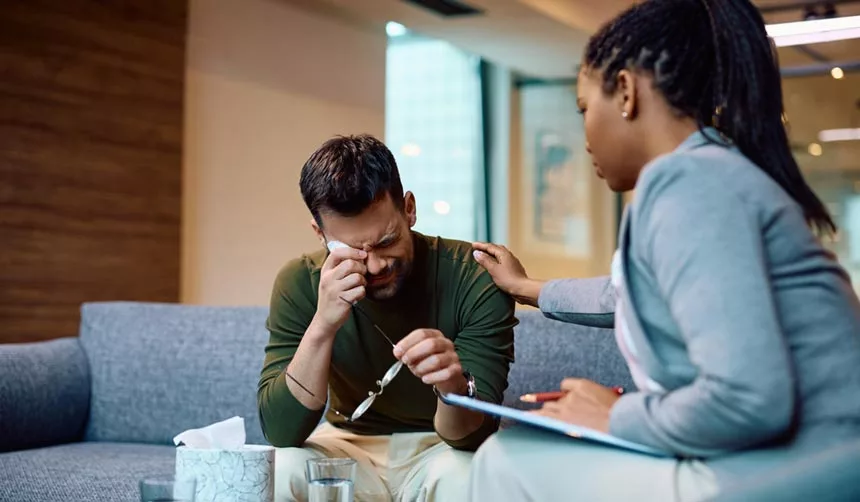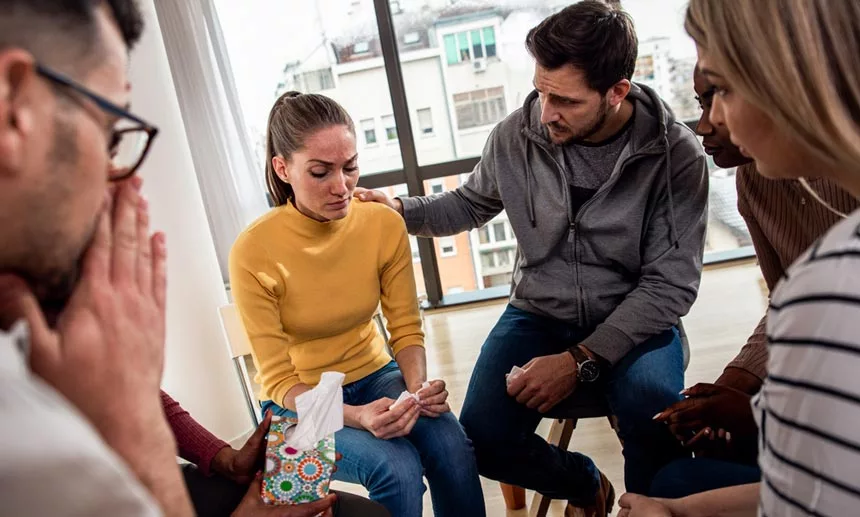Gratitude Lists and How They Help You in Recovery
Table of Contents
- Gratitude Lists and How They Help You in Recovery
- What is an Addiction Recovery Gratitude List?
- How Gratitude Can Change Your Perception In Life
- Seek it in Others Around You in Recovery
- Share it with Family Members and Friends
- Combining Spirituality With Evidence Based Treatment
- Choosing the Right Treatment for Your Substance Abuse
- Our Lifeline is Here if You Are Struggling
- FAQs on Gratitude Lists in Recovery
- Medically Reviewed By
We are often told in the rooms to practice an “attitude of gratitude” during our recovery from addiction. When first hearing this, it is easy to assume that this means just being polite, and saying thank you when necessary.
Anyone who has participated in a 12-step recovery program and gone through the process of recovery, however, will have a deeper understanding of what this means, and how making gratitude lists in recovery can change their perspective.
If you are recovering from a drug or alcohol addiction, it will come as no surprise that this process can bring with it negative feelings and periods of hardship. Learning how to practice gratitude is one of the many ways in which you can make this process not only easier but more rewarding.
Keep reading to learn our tips on cultivating a gratitude list practice that can enhance your life on daily basis!
What is an Addiction Recovery Gratitude List?
Some people see gratitude lists as things to make during the holiday season when tradition calls upon us to celebrate our loved ones and the positive aspects of our lives. However, these lists can be invaluable tools for those who are recovering from drugs and alcohol.
For my recovery gratitude list, I was required to write down ten things I was grateful for. So I wrote down the basic external things that came to mind, my house, my job, my car, and my family. Then I stopped. It struck me that I had not really felt appreciation for anything very deeply at all up until that point. I had a gratitude jar once, but once I stuck a few post-its in, it collected dust.
I had good days and bad days, twists and turns, and everything in between, but I had never really stopped to appreciate anything. I was so wound up in getting more and doing more and becoming more that I had not once stopped and allowed myself to be grateful for anything.
Some may say that these are basic human instincts, but after that first day of making my gratitude list, my perception slowly started to change. I found that day by day, I was writing down deeper and more personal things.
Things that were meaningful to only me like finding trust in a higher power of MY OWN understanding or being surrounded by friends and family and actually enjoying it. I started to be thankful for the willingness to reflect in the mornings, and even for the sweet old woman who smiled at me in the grocery store
How Gratitude Can Change Your Perception In Life
Making a gratitude list is one of the simplest ways we can change our perception of life. It opens us up to the little things that are so easy to avoid in the hustle and bustle of day-to-day life. Although we may not stop and smell the roses at that moment, we get the opportunity to reflect on them at a later date.
Adopting an attitude of gratitude can take practice for many of us, especially if we are not used to taking the energy to try to have a positive outlook on the world around us. Fortunately, there are ways to make it easier to start focusing on the positive things in our lives.
Here are a few little tips that I use to remind myself throughout the day to be grateful:
Carry a Gratitude Token
While this may sound cheesy, carrying around a small gratitude memento can help you stay thankful in the moment. This could be as simple as a keychain, a stuffed animal, or anything else that you can physically touch and use to remind you of the good things you have in your life.
There is nothing wrong with having a little push to be grateful, as long as it helps you stay focused on the things that matter.
Practice Positive Thinking During Recovery
Whether your roommates are bugging you, your job is stressful, or your car is acting up, try to think of every situation in a positive light. Before you got sober, you may not have even had those things.
Changing your mindset from an “I have to do this” to an “I get to do this” perspective can be changing. By treating obstacles as new opportunities and embracing the consequences of their mistakes as learning material, many addicts have boosted their self-esteem and confidence to keep going on their recovery journey.
Seek it in Others Around You in Recovery
The best way to adopt new thinking is to get around people in recovery who already have it. When you surround yourself with people who only speak highly of themselves, others, and the world around them, you will start to find it easier to do the same.
Many people who struggle with addiction also find themselves plagued by depression and anxiety. Making new friends who can help raise your self-confidence and positivity can help you stay in good health not just physically, but mentally as well.
There is no shame in latching onto the winners, or those who you view as being successful in their sobriety when trying to change your life for the better. Having positive influences and support can make it all the easier to create better habits and mindsets in your own life.
There is no better feeling than to make someone feel truly good about themselves. We should never be shy about this. If someone helps us, they may never know how much until we tell them. Being consistent with giving will open our hearts to receiving.
Life can be a dark place for a recovering addict. But once we have found a new way of life, we owe it to ourselves to hold onto it any way we can. Making a gratitude list can open our perception of the beauty around us.
When we become accepting and willing to acknowledge the dark aspects of our past, we will find it easier to open up to a more promising future. Regardless of whether we can see the outcome immediately, we can remember that we have survived our tumultuous past.
We survived the hardest parts, and every day that we wake up should be treated as a gift worth paying attention to and being thankful for. With all of this in mind, it is important to remember that being grateful is not the only thing that goes into staying sober.
Combining Spirituality With Evidence Based Treatment
While practicing gratitude and mindfulness are certainly great ways to focus on the present moment, many recovering addicts will need additional support in order to make a successful recovery.
This is why it is recommended to combine spiritual and holistic recovery methods with evidence-based treatment. There are many benefits to seeking evidence-based addiction treatment, including:
- Increased effectiveness: Evidence-based treatments have been shown to be more effective than other types of treatment, such as a 12-step program or support group, which may not be able to properly address all aspects of your addiction.
- Improved outcomes: People who receive evidence-based treatment are more likely to get and stay sober than those who do not, as they have received whole-health care.
- Increased safety: Some substance withdrawal symptoms can be life-threatening, and will require extensive clinical support to be properly managed. Evidence-based rehab services can provide the safety and structure necessary during the early recovery period.
- Reduced risk of relapse: Evidence-based programs can help you to develop coping skills and strategies for dealing with triggers and cravings, which can help to reduce your risk of relapse.
- Improved quality of life: Seeking evidence-based treatment can help you to improve your overall quality of life, including your physical health, mental health, and interpersonal relationships.
- Increased accountability: When participating in an evidence-based treatment program, this will often involve a team of professionals who work together to create a treatment plan that is tailored to your needs. This can help to ensure that you are held accountable for your recovery.
If you or someone you know is struggling with addiction, it is important to seek help from a qualified professional. The Find Addiction Rehabs team can help you find evidence-based treatments that will help you achieve and maintain long-term sobriety.
Choosing the Right Treatment for Your Substance Abuse
Choosing the right treatment center option for your particular substance abuse habits is an important decision. There are many different treatment options available to choose from. Knowing which of these will be the best option for you will depend on your individual needs and circumstances.
Some factors to consider when choosing the right treatment program include what type of addiction you are struggling with, whether you will need more intensive or flexible treatment, how long the program will be, and how much it will cost.
Once you have considered these factors, you can start to narrow down your choices. Talking with an addiction specialist can help make choosing the right program easier. The Find Addiction Rehabs team can help you find a treatment program that is right for you with a confidential call today.
Our Lifeline is Here if You Are Struggling
If you have found yourself suffering from addiction, you are not alone! If you are ready to change your life and live free of addiction, then the Find Addiction Rehabs team can help. We give you the jump start to recovery as well as teach relapse prevention including learning healthy outlets in sobriety.
We work with an extensive network of rehab facilities that do not just treat the addiction but instead focus on the whole person. Reach out to our team of recovery representatives to start your journey to getting sober today!
FAQs on Gratitude Lists in Recovery
How Do You Write a Gratitude List in AA?
Writing a gratitude list can be a powerful tool for recovery. It can help you to focus on the positive aspects of your life, to connect with others, and to feel more supported. There is no specific way to make a gratitude list, and not everyone will follow the same approach.
There is no need to feel pressure to make a perfect list. The goal is simply to get your thoughts down on paper and make an effort to find things to be grateful for. You can start by assessing your current situation, and seeing what things give you a sense of hope and motivation.
Taking time on a daily basis to reflect on and write down the things that give you happiness and that you are grateful for is a great way to start creating your gratitude list.
Do I Have to Be In AA to Make a Gratitude List?
No, you do not have to be an AA member to make a list of things you are grateful for in recovery. In fact, there are no prerequisites that you have to meet to find ways to feel good about yourself.
Whether you are dealing with an active addiction or well into your recovery process, focusing on the positive aspects of your life can make a world of difference for both your physical and mental stability.
Rachael Goldstein has been a freelance writer for more than 10 years, having written for Find Addiction Rehabs for the past two years. She specializes in writing about the law, mental health, psychology, and addiction. She is the owner and author of the website www.addicted-to-sobriety.com. Rachael is also a licensed attorney in the state of Pennsylvania.





